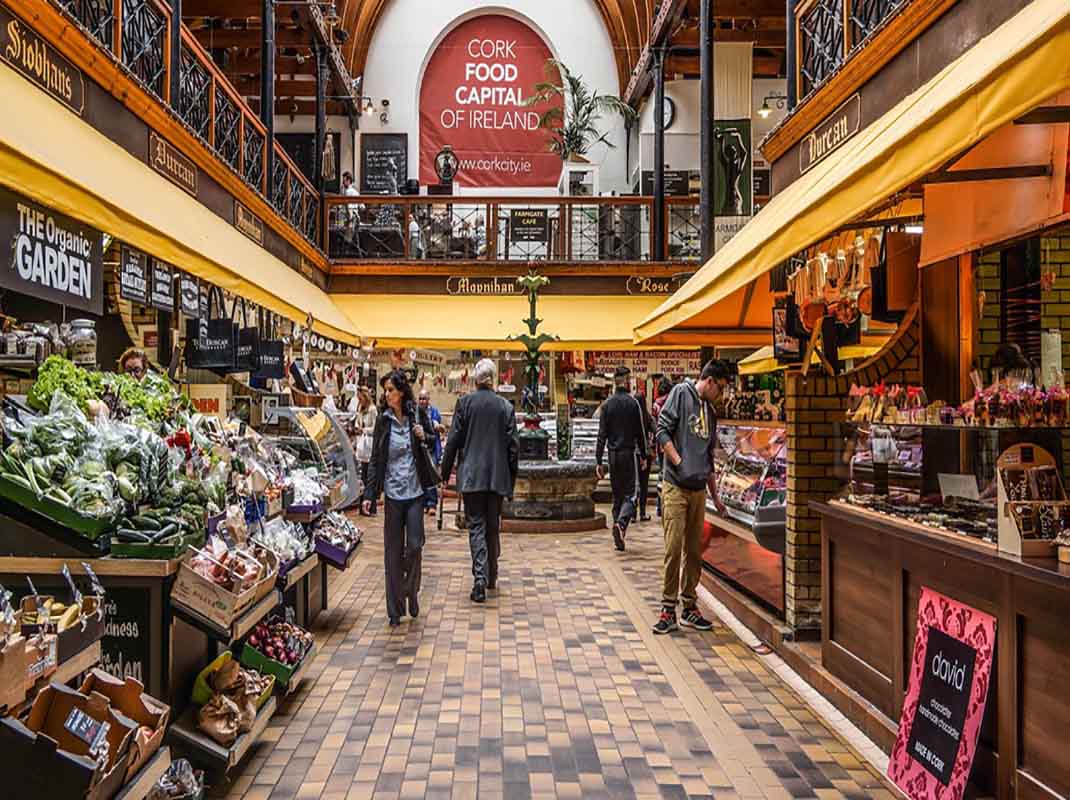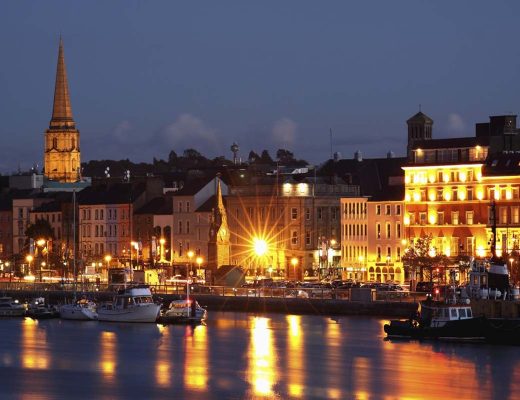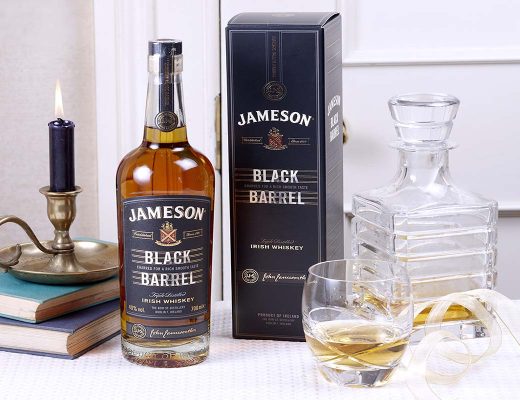When I first arrived in Cork, I expected the city to charm me with its food and music, but I hadn’t realized how much its shopping scene would capture my imagination. From bustling markets to quiet artisan studios tucked into narrow lanes, Cork is filled with treasures that reflect the heart of Ireland. I still remember stepping into the English Market for the first time, the warm smell of baked bread mixing with fresh cheeses and spices, while a busker outside strummed a guitar. I realized almost immediately: shopping in Cork isn’t just about buying things, it’s about experiencing the local culture through the items people make, sell, and cherish.
This guide is for anyone planning their first trip to Cork, particularly if you want to know what souvenirs and specialty goods are truly worth taking home. I’ll take you through my favorite spots, the items that felt most authentic, and give plenty of tips on how to shop smartly, avoid tourist traps, and enjoy the process.
The English Market: Cork’s Beating Heart
No shopping guide to Cork could possibly begin anywhere other than the English Market on Princes Street, right in the city center. Established in 1788, it remains one of Europe’s oldest municipal markets still in operation. Every time I step inside, I feel as though I’m walking into a living museum where tradition and modernity sit side by side. The vaulted ceiling arches overhead, sunlight filtering through the glass and casting a glow on the tiled floor. The soundscape is just as vivid — stallholders calling out greetings, knives rhythmically chopping, the sizzle of meat on pans, and the constant murmur of locals catching up with neighbors.
The stalls themselves are overflowing with character: butchers with generations of knowledge etched into their hands, cheesemongers showcasing County Cork’s finest artisan wheels, bakers pulling fresh soda bread from ovens that steam the air, and fishmongers whose displays sparkle with Atlantic catch so fresh it looks as though it had leapt from the sea only hours earlier. As I wandered, I found myself slowing down at nearly every stand, partly to admire the produce but mostly to listen to the sellers. There’s something disarmingly warm about the way Cork traders speak — they want you to know the story behind what you’re buying.
Souvenirs Worth Buying at the English Market
- Artisan Cheese: Shops like On the Pig’s Back are a true pilgrimage site for cheese lovers. Here I discovered Durrus, Gubbeen, and Milleens cheese, each with a distinctive flavor profile that tells the tale of the rugged West Cork landscape. The staff explained how sea air and grass-fed herds influence every wheel. These cheeses travel well if properly packed, and many vendors offer vacuum sealing on the spot.
- Black Pudding and Sausages: For something unmistakably Cork, head to Tom Durcan Meats. Their black pudding has a smoky depth balanced with oats and spice, and locals buy it in bulk for family gatherings. It’s so iconic that many Cork families send packets abroad to loved ones craving a taste of home.
- Local Chocolates and Jams: Dotted between the butchers and fishmongers are stalls selling sweet treasures — handmade chocolate truffles, jams infused with whiskey or forest berries, and honey harvested from Cork’s countryside. These are lightweight, beautifully packaged, and perfect for slipping into your suitcase.
Insider Tip
The English Market grows busier as the day unfolds, so go early in the morning to savor the atmosphere before the crowds descend. Chat with the stallholders — most love explaining their products’ heritage and even offering samples. And if you want to pause from shopping, climb the stairs to the Farmgate Café, perched like a balcony above the market. From here, you can taste the same ingredients sold downstairs, transformed into traditional dishes. For weekends, I always book ahead through OpenTable (opentable.com) to guarantee a table.
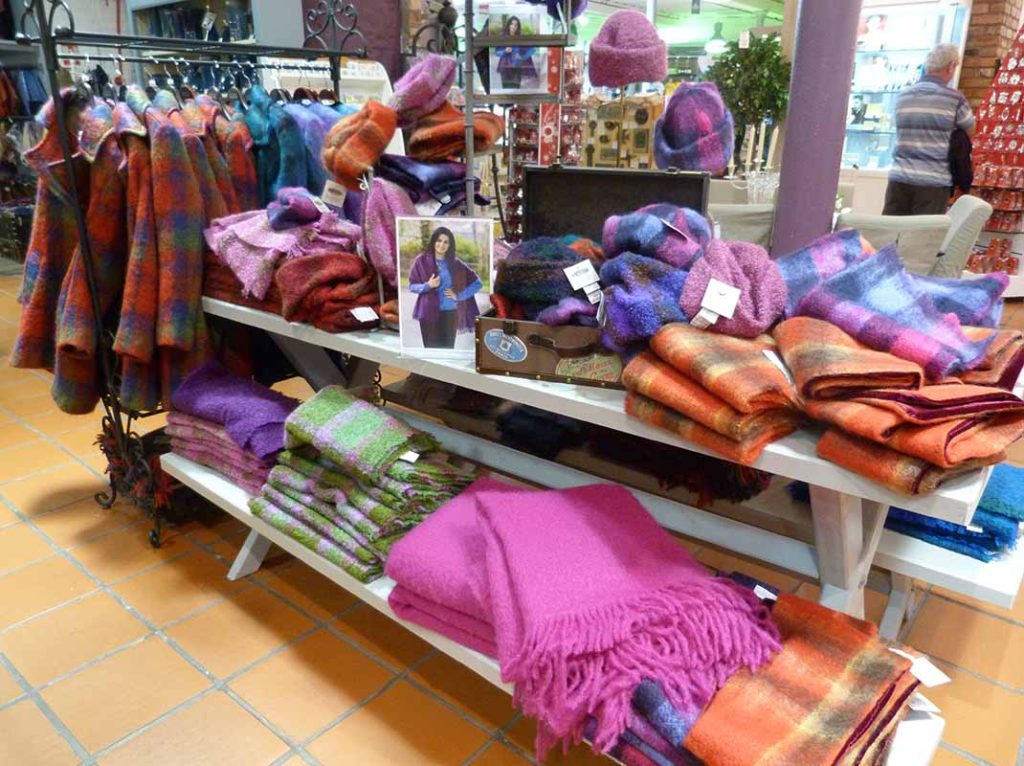
Irish Wool and Knitwear: Timeless Keepsakes
The first time I tried on an Irish Aran sweater in Cork, I understood why these garments are treasured worldwide. Made of thick, natural wool, they’re not just warm but deeply symbolic — each pattern historically represented a family, almost like a signature.
Where to Buy
- Blarney Woollen Mills: Just a short bus ride from Cork city, this iconic store is the holy grail for knitwear lovers. They sell sweaters, scarves, blankets, and hats made from local wool. I bought a chunky cream-colored cardigan there that still feels like a warm hug every winter.
- Kilkenny Shop (Emmet Place): A great central option for sweaters with modern twists — softer colors, slimmer fits, but still unmistakably Irish.
Advice for First-Time Buyers
Check the label for 100% wool if you want authenticity. Some shops mix wool with acrylic, which can be softer but less durable. If you’re sensitive to itchiness, look for merino or cashmere blends. Don’t be shy about asking staff how to care for your sweater — many will explain hand-washing methods to preserve its life.
Cork Crystal and Pottery: Elegance to Bring Home
I hadn’t realized until exploring Cork just how strong its tradition of crystal and pottery craftsmanship is. While Waterford might dominate headlines, Cork artisans hold their own with elegance and flair.
Must-Visit
- Caheragh Pottery: Their rustic, hand-thrown pieces carry the blues and greens of Ireland’s landscape. I bought a deep teal mug that reminds me of the Atlantic coast every time I sip coffee.
- Cork Crystal: For those who want something luxurious, crystal glasses or vases engraved with Celtic motifs make unforgettable souvenirs. They’re pricier, but worth every cent for the craftsmanship.
Practical Shopping Note
Shipping heavy items like pottery and crystal can be expensive. Many shops, however, will arrange insured delivery right to your home. If you’re flying Ryanair or Aer Lingus and worried about luggage weight, this is a great option.
Jewelry with Celtic Roots
Walking along Cork’s Patrick Street, I came across several jewelers offering pieces inspired by Celtic heritage. Rings with intricate knot designs, pendants shaped like Claddagh symbols, and earrings that shimmer with Connemara marble — all felt deeply tied to Ireland’s identity.
I bought a small silver Claddagh ring at Keanes Jewellers (84 Oliver Plunkett Street). The shop has been a Cork institution since 1948, and the staff made the experience personal, even explaining the tradition: wear the heart pointing out if you’re single, inwards if your heart is taken.
Edible Souvenirs Beyond the Market
While the English Market is unbeatable, Cork has countless specialty food shops scattered across town.
- Ballymaloe Relish: This sweet, tangy relish is an Irish kitchen staple. You’ll find jars in nearly every supermarket, but small delis often stock gift boxes that pair relish with crackers and cheese.
- Murphy’s Ice Cream (Oliver Plunkett Street): While ice cream itself isn’t a souvenir, their gift tins of fudge are. The Dingle Sea Salt flavor made my suitcase smell heavenly.
- O’Conaill Chocolatiers (French Church Street): Famous for hot chocolate, they sell beautifully wrapped bars in flavors like Irish Whiskey or Sea Salt Caramel.
For travelers who want to save time, online ordering via Arnotts.ie or Kilkennyshop.com can deliver Irish food hampers straight to your hotel or even back home.
Street Markets and Pop-Ups
Beyond the established stores, Cork thrives with small pop-up markets. On Saturdays, the Coal Quay Market is alive with local crafts, handmade soaps, candles, and textiles. I picked up lavender-scented soap from a stall run by a woman who distills essential oils from her own garden.
Pop-up craft fairs often appear near Cornmarket Street. Always carry some cash, as smaller vendors may not accept cards. Bargaining isn’t common, but many artisans will give discounts if you buy multiple items.
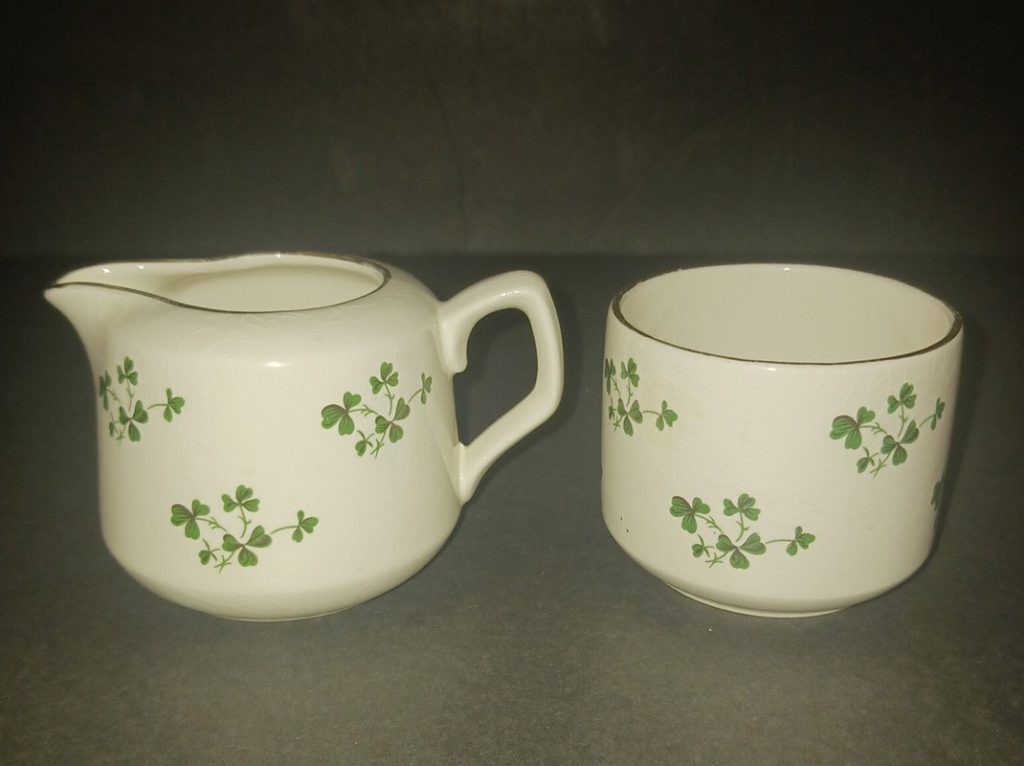
Shopping Smart in Cork
Shopping can be overwhelming for first-time visitors, so here are my best tips:
- Timing: Most shops close around 6 p.m., though Patrick Street chains may open later on Thursdays and Fridays.
- Tax-Free Shopping: Non-EU travelers can claim VAT refunds on purchases over a certain amount. Always ask for a VAT receipt.
- Supporting Local: Whenever possible, I recommend choosing items from small artisans rather than touristy souvenir shops. They not only feel more authentic but also keep Cork’s craft traditions alive.
Booking Platforms to Help You Plan
When planning my Cork shopping adventure, I relied on a mix of European travel platforms to make the logistics smooth:
- Accommodation: I booked centrally located hotels via Booking.com (booking.com), which gave me flexibility with free cancellation. Airbnb is also common in Cork if you prefer apartments with kitchens.
- Flights: I used Skyscanner (skyscanner.net) to compare budget options like Ryanair with full-service airlines like Aer Lingus.
- Transport: For car rentals to reach rural craft shops, Europcar.ie was my go-to.
- Experiences: For day trips (like combining shopping with a visit to Blarney Castle), I used GetYourGuide and Viator to book tours easily.
- Dining: When I wanted a sit-down dinner after a long shopping day, OpenTable made booking Cork restaurants effortless.
Wandering Home with Memories
By the time I left Cork, my suitcase was heavy with cheese, pottery, and sweaters, but what stayed with me most wasn’t just the items. It was the warmth of the vendors, the way strangers explained the story behind their crafts, and the sense that shopping here is more than consumerism — it’s a bridge into Cork’s culture.
I’ve since given many of those souvenirs to friends back home, and each time, I find myself telling the stories of where I bought them. That’s the beauty of Cork’s shopping scene: every item carries a memory.
